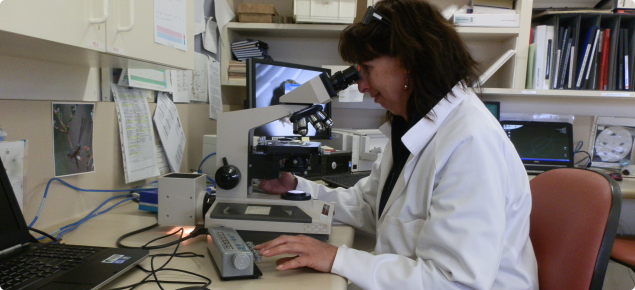Below is an excerpt from the research project summary:
"Early detection of infectious diseases is critical for successful management of biosecurity risks. In this project we will apply next generation sequencing (NGS) to develop a laboratory test that simultaneously detects multiple infectious agents in the one sample. This technology, termed ‘metagenomic diagnostics’ where the total DNA in a sample is audited, will revolutionise pathogen detection and benefit agriculture and the agribusiness industry through improved biosecurity, assist in disease management and protect market access.
Whilst improvements in detection methods have occurred with standard diagnostic platforms such as PCR, there are still limits for detection of some infectious agents due to turnaround time, lack of sensitivity or specificity, lack of strain information for disease management, the requirement to optimise numerous molecular assays, or the need to use a battery of assays to obtain a diagnosis.
Metagenomic diagnostics will be applied to detection of bacterial, fungal and viral diseases causing respiratory, intestinal and reproductive diseases of farmed animals. Both a broad-based (shotgun metagenomics) and targeted metabarcoding (deep amplicon sequencing) approach will be used and verification of the detected agent will be performed with current assays. Appropriate sample type such as oral fluid, blood or faeces, sample transport and storage will be assessed.
Metagenomic diagnostics can be applied to detection of strain differences in Johnes Disease and ovine footrot, or antibiotic resistance genes that may adversely impact on the food chain. This technology will enable DAFWA to respond rapidly to disease outbreaks and disease surveillance to maintain market access. As the technology develops and this one test approach is integrated into diagnostic laboratories, test turnaround time and cost will be reduced significantly. Future applications include development of metagenomic diagnostics for all organisms on the WAOL list."
This project is managed by DAFWA.

